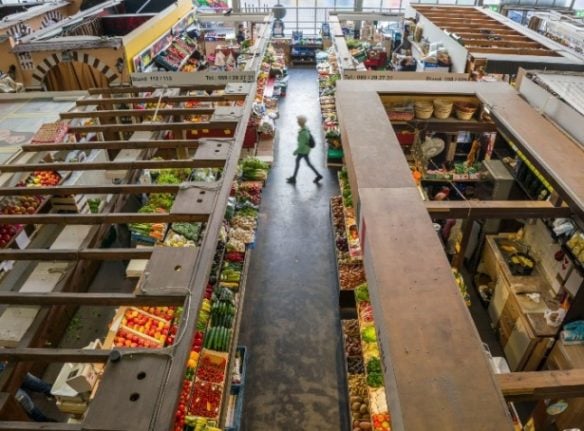The new Covid health pass entry rules announced by the central state of Hesse have upped the pressure on the unvaccinated by allowing all shops to implement the so-called 2G rule at their doors.
The 2G rule refers to public places being given the option to allow entry only to vaccinated (geimpft in German) or people who’ve recovered from Covid (genesen). and has so far been allowed in half of Germany’s states for certain public places like bars, restaurants, nightclubs and cinemas.
The government in Hesse said that it had taken the decision to go a step further and allow shops to bar entry to the unvaccinated “at the request of the sector”.
Implementing 2G rules allows shops to drop mask-wearing and social distancing rules.
“We expect that this option will only be used on some days and that businesses which cater to everyday needs will not make use of it,” state leader Volker Bouffier said on Tuesday.
The decision comes after a Frankfurt court ruled in favour of a barbecue utensil store which had launched a legal objection to the fact that it could not implement 2G rules on its premises.
The court said in its ruling earlier in October that it had “considerable legal reservations about the exclusion of sales outlets and similar establishments from the so-called 2G rule”.
READ MORE: Should retailers in Germany be allowed to exclude unvaccinated people from entry?
2G has proved controversial, with many people complaining that it excludes people who can’t vaccinated and that it has the potential to widen societal divisions over the pandemic response.
Many locations in the hospitality and entertainment sector have stuck to a 3G rule, which allows people to enter if they can show a negative Covid-19 test.
Throughout the pandemic, German authorities have excluded supermarkets and other grocers from most restrictions, such as lockdowns and entry rules, in order to ensure that everyone has continued access to essential goods.
With several million German adults still to be vaccinated as the winter draws near, authorities have sought to up the pressure on them by making access to some parts of public life more difficult or costly.
Eight federal states have allowed businesses and event organisers to adopt the so-called 2G option – that is to allow entry only to the vaccinated (geimpft) and people who’ve recovered from Covid-19 (genesen) – and not unvaccinated people who’ve tested (getestet) negatively for Covid.
Nationwide, the negative lateral flow test that is necessary to be allowed entry as an unvaccinated person is no longer free. The government has said that this decision was taken in order to reduce the tax burden of pandemic measures.
The Local approached the Hesse government for comment.



 Please whitelist us to continue reading.
Please whitelist us to continue reading.
Member comments